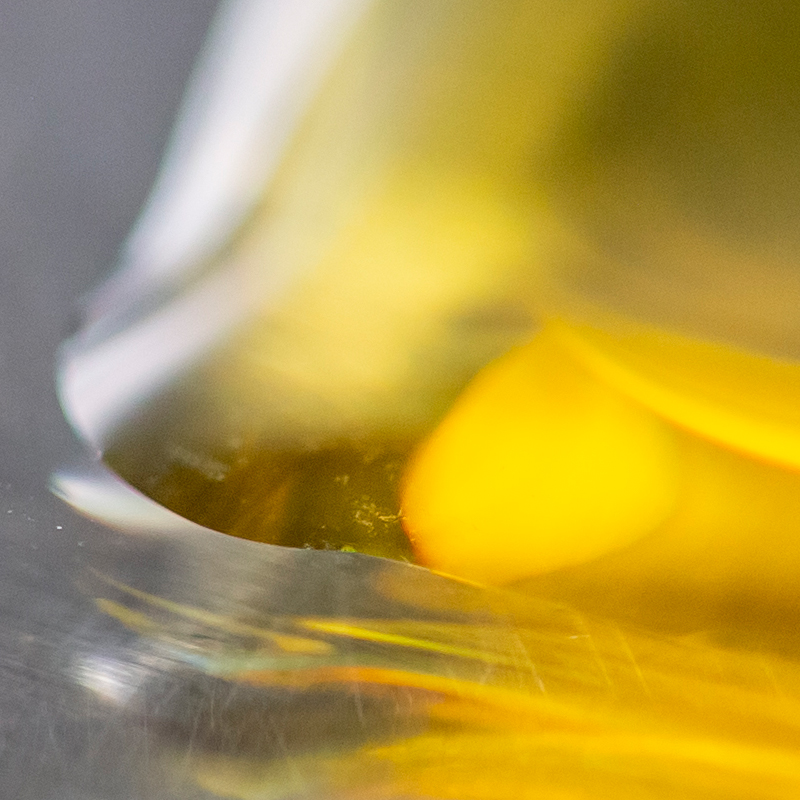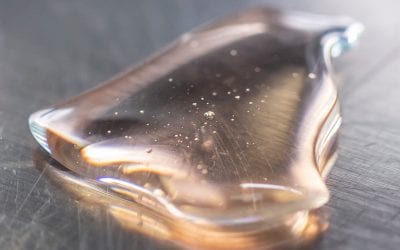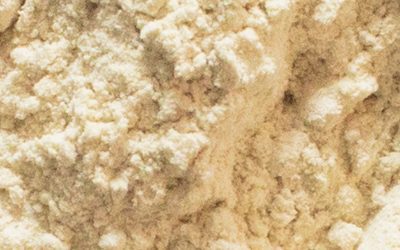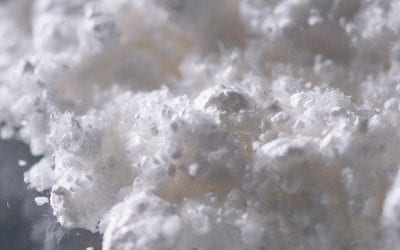What is CBC?
Cannabichromene, also known as CBC, is a minor cannabinoid that naturally occurs in hemp plants. CBC is a cannabinoid which we have done extensive research both internally and externally referencing some of the most recent research publications. With over a year and a half of method development, we’ve learned a great deal about cannabichromene’s physical properties and dialed in our CBC isolate purity to greater than 99%.
In recent years, researchers have investigated and validated some of the many health claims around CBC. At the same time, cannabinoid producers have gotten better at extracting CBC from hemp plants. This combination of increased research and commercial availability has a lot of people excited about this minor cannabinoid.
Although CBC is structurally similar to other cannabinoids like CBD and CBN, it has a unique set of properties and benefits. In this blog, we will highlight some of the research and investigations that support the therapeutic potential of CBC.
Benefits of CBC:
Like other cannabinoids, CBC binds with receptor sites throughout the endocannabinoid system to signal changes internally. These cannabinoid receptor sites have many purposes and can be found all throughout the human body. By interacting with this extensive receptor network, CBC may influence a huge range of conditions, including:
Pain and Inflammation:
CBC may have powerful anti-inflammatory and analgesic properties. Multiple animal studies have found that CBC can reduce painful inflammation and swelling.(1)(2) Plus, CBC has also been shown to block pain perception in rodents.(3) Together, these studies suggest that CBC can fight pain and inflammation by reducing pain-causing inflammation and swelling, and by reducing the perception of pain.
Anti-Acne:
CBC has been shown to be a powerful inhibitor of acne.(4) This is not terribly surprising, given that acne is a condition caused by the inflammation in certain skin cell glands, and that CBC has well-documented anti-inflammatory effects. While CBD also has anti-inflammatory effects, CBC seems to be a more effective alternative to relieve active acne and prevent future outbreaks. In tandem, CBD and CBC could be a very potent anti-acne solution for the future.
Depression:
Cannabichromene (CBC) may also help treat depression. A 2010 study found that CBD and CBC both effectively reduced depression-like symptoms in animals, whereas CBN and CBG had no such effect. This led researchers to conclude that CBC and CBD may be responsible for the mood-elevating properties of hemp.(5)
CBC Products
Given the potential wellness benefits listed above, it’s no surprise that there’s a growing demand for CBC cannabinoid supplements. You’ll definitely want to check how your CBC oil gets made and check the certificate of analysis from a third party testing lab, as some processors may have residual impurities in their product.
For highly pure CBC, you might want to check out our CBC Isolate. This product will contain up to 99% CBC, leaving virtually no room for unwanted chemicals or inert matter. At room temperature CBC is a liquid oil, making this pure isolate will be easier to work into product formulations, as they will have little odor or taste.
Another exciting option is water soluble CBC powder. This product is crafted through a state of the art emulsion process that increases bioavailability and workability. This nano-particularized CBC can be easily worked into beverages and topicals.
One final thing to consider is how CBC and other cannabinoids work together. While the “entourage effect” is still not fully understood, certain cannabinoid combinations do seem to enact a kind of biological synergy. In the studies listed above, CBC and CBD were occasionally combined to produce complementary results. So if you’re interested in supplementing with CBC, it will definitely be worthwhile to consider what other cannabinoids you pair it with.
The Future of CBC
Like many of the other cannabinoids, there is still a great deal to be discovered and understood about the therapeutic potential of CBC. As research institutions continue to garner the resources to organize and publish clinical trials and rare cannabinoid processors begin to yield consistent purity and scale in the production of CBC, we believe there is a great deal of potential for this cannabinoid to be one of the leading rare cannabinoids to transform health and wellness.
References
1) DeLong GT, Wolf CE, Poklis A, Lichtman AH. Pharmacological evaluation of the natural constituent of Cannabis sativa, cannabichromene and its modulation by Delta(9)-tetrahydrocannabinol. Drug Alcohol Depend. 2010;112(1-2):126–133.
2) Izzo AA, Capasso R, Aviello G, Borrelli F, Romano B, Piscitelli F, Gallo L, Capasso F, Orlando P, Di Marzo V. Inhibitory effect of cannabichromene, a major non-psychotropic cannabinoid extracted from Cannabis sativa, on inflammation-induced hypermotility in mice. Br J Pharmacol. 2012;166(4):1444–1460.
3) Maione S, Piscitelli F, Gatta L, et al. Non-psychoactive cannabinoids modulate the descending pathway of antinociception in anaesthetized rats through several mechanisms of action. Br J Pharmacol. 2011;162(3):584-596.
4) Oláh A, Markovics A, Szabó-Papp J, et al. Differential effectiveness of selected non-psychotropic phytocannabinoids on human sebocyte functions implicates their introduction in dry/seborrhoeic skin and acne treatment. Exp Dermatol. 2016;25(9):701-707.
8) El-Alfy AT, Ivey K, Robinson K, et al. Antidepressant-like effect of delta9-tetrahydrocannabinol and other cannabinoids isolated from Cannabis sativa L. Pharmacol Biochem Behav. 2010;95(4):434-442.




